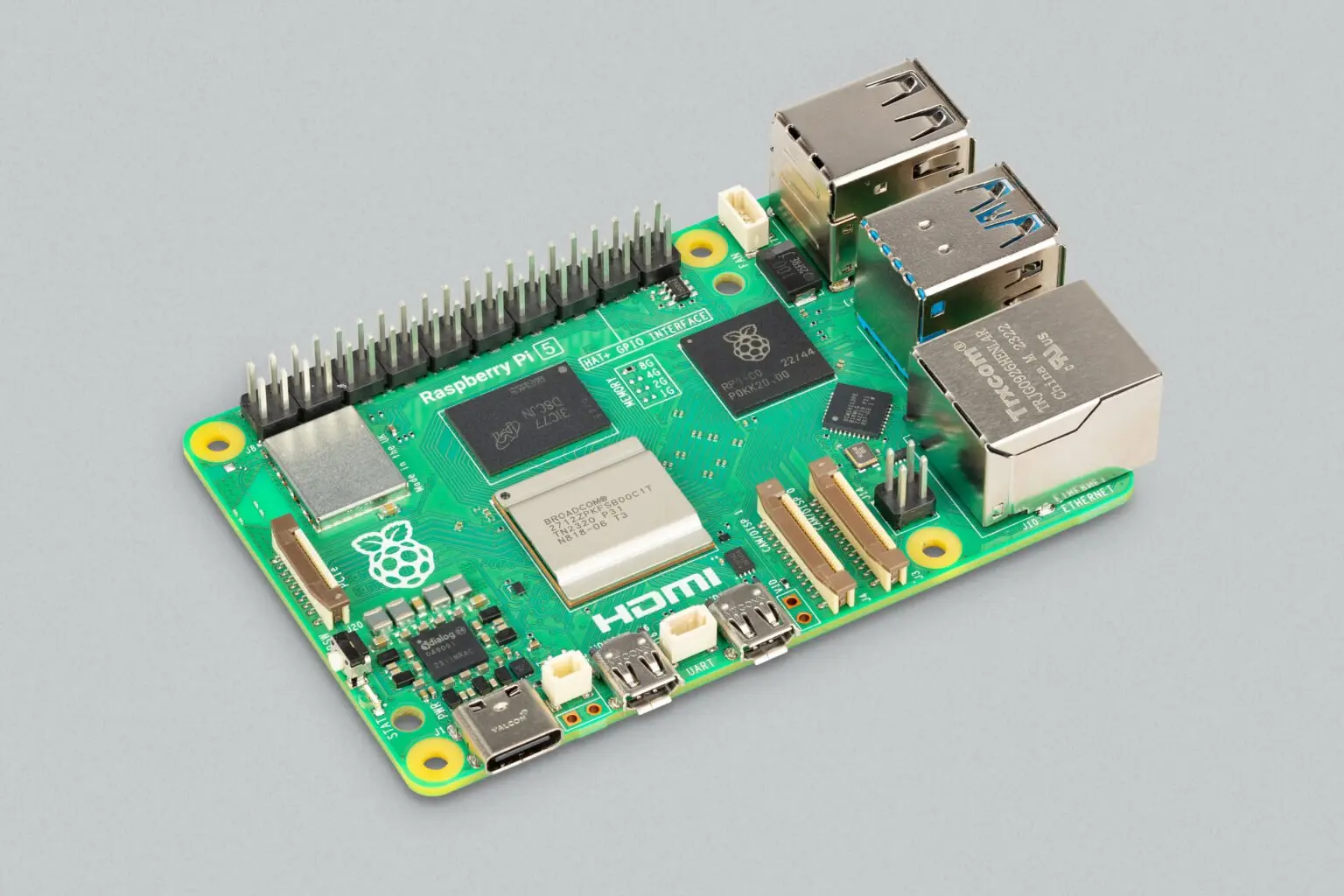As you may know, the PI 5 is a fantastic improvement to our cherished Raspberry PI! The benchmarks below show how much our Raspi has improved across the board.
So, is the upgrading worthwhile? I gathered the benchmark results I could find online and I'll summarise the performance increase by comparing it to the PI 4 performance, using percentages to make the comparison of the two Raspberrys even easier.

Raspberry PI 5 specs versus PI 4
Here are some of the key improvements:
- Processor: The Pi5 features a 2.4GHz quad-core 64-bit Arm Cortex-A76 CPU, which is a significant upgrade over the 1.5 GHz quad-core ARM Cortex-A72 processor found in the Raspberry Pi 4. This processor provides up to three times the performance of the previous generation.
- GPU: The Raspberry Pi 5 GPU specs show a Videocore 7 microarchitecture clocked at 1GHz, vs a 500 MHz Videocore 6 on the Pi 4 Model B
- USB Ports: The Pi 5 features also two USB 3.0 ports but with simultaneous 5Gbps operation, instead of shared 4Gbps ports.
- Video Output: The Pi 5 is capable of driving two simultaneous 4Kp60 HDMI displays, where the PI4 was limited to 30 frames per second with two 4K displays
- Wireless connectivity: The Raspberry Pi 4 features built-in dual-band 802.11ac wireless networking. It also has Bluetooth 5.0 support, which allows for better range and speed than previous versions.
- Connectivity: a single lane PCI-E 2.0 connector is now paving the way for SSD expansion cards, and 2 × 4-lane MIPI camera/display transceivers are available
- Micro-SD: the max speed was increased with SDR104 mode support
Raspberry PI 5 CPU Performance comparison
The PI5 CPU upgrade to a quad core Cortex-A76 (BCM2711) is three microarchitectural generations beyond the old Cortex-A72, and gives an impressive boost as confirmed in benchmarks given by Gareth Halfacree and Jaryd. Below is the increase in percent over the previous generation Raspberry PI4B:
- Linpack Single Precision: +290%
- Linpack Double Precision: +260%
- Linpack Single Precision with NEON instructions: +290%
- Speedometer 2.1 browser speed test: +190%
- Jetstream 1.1 web browsing / Javascript test: +130%
- BZip2 File compression single threaded: +119%
- BZip2 File compression multi threaded: +99%
- Sysbench single-thread: +54%
- Sysbench multi-thread: +54%
- TensorFlow Lite benchmark Squeezenet: +68%

Raspberry PI 5 memory bandwidth
The upgraded 32-bit LPDDR4X SDRAM subsystem, runs now at 4267MT/s, up from an effective 2000MT/s on Raspberry Pi 4.
I'm waiting for other Ramspeed and Passmark benchmark to confirm this theoretical doubling of memory bandwidth. Jaryd found a five time speed increase with Ramspeed, which is surprising, but could be explained by a problem with RAMspeed, which tests the processor cache rather than RAM. Bret found a more reasonable increase, with Passmark, in line with the LPDDR4X upgrade.
- RAMspeed 1MB blocks write: +560% to be confirmed (RAMspeed problem?)
- RAMspeed 1MB blocks read: +373% to be confirmed
- Passmark Memory Mark: +101%
Raspberry PI 5 Networking improvements
According to Gareth Halfacree, the WiFi performance was increased even if the same WiFi chip is used in the new Raspberry. The new CPU and memory seem to help a lot for the 5Ghz bands:
- Wifi throughput at 2.4Ghz: +5%
- Wifi throughput at 5Ghz: +200%
Ethernet speeds seem to be more or less the same.
Raspberry PI 5 USB and MicroSD card storage
Raspberry pi 5 users measured up to 67 MB/s sequential read with Amazon Basics 64GB MicroSDXC cards. For sequential writing, we can expect 41 MB/s. The same card on a Raspberry PI 4 gives 40 MB/s read and 26 MB/s write.
- Micro SD read: +67%
- Micro SD write: +57%
Raspberry PI 5 power consumption
When running an identical workload, the Raspberry Pi 5 uses significantly less energy and runs noticeably cooler than the Raspberry Pi 4. However, due to the significantly higher performance ceiling, peak power consumption rises to about 7W for the most demanding workloads, as opposed to 6.2W for the Raspberry Pi 4. Idle power consumption are much higher according to this article, and are close to some NUC mini-PCs.
- CPU Idle: 2.7 watts (vs 1.3 watts on the PI 4B rev 1.5)
- CPU Loaded: 7 watts (vs 6.2 watts)
It would appear that PI4B board revisions prior to 1.5, consume almost twice as much current at rest as version 1.5. This revision is therefore preferable if you want minimum power consumption.
Update: The new PI5 with 2GB of RAM, and the BCM2712 D0 stepping seems now to draw nearly 0.9 watt less idle and loaded.
Conclusion
The Raspberry Pi 5 features significant upgrades over the Pi 4, including a faster quad-core Cortex-A76 processor, up to 8GB of RAM, and an enhanced VideoCore VII GPU. It offers improved connectivity with PCIe 2.0, USB 3.0, and gigabit Ethernet, alongside better wireless performance. The Pi 5 also supports faster storage options, boosting overall performance and versatility for demanding applications. These enhancements make it a powerful and flexible platform for developers and hobbyists alike.
The Raw CPU power of the PI 5 is comparable to the Intel N100-powered mini-PCs like the GMKtec NucBox G3, according to Geekbench 6 numbers.
So yes, the new PI5 performance/price ratio is on top, outperforming the PI4 and many other clones, even the latest Orange PIs. But this increase in performance comes at a price, in terms of the Raspberry's power consumption. This is an important point to consider for those who will be using the Raspberry in IoT or embedded mode, as the performance per Watt seems to be similar.
To support the blog you can buy your next Raspberry PI using this link:



Speak your mind: